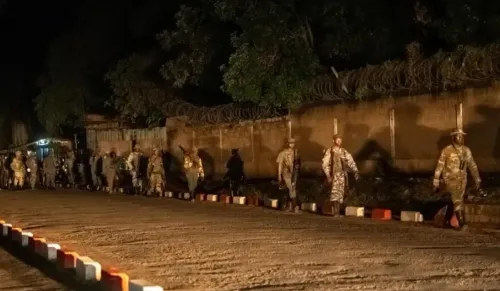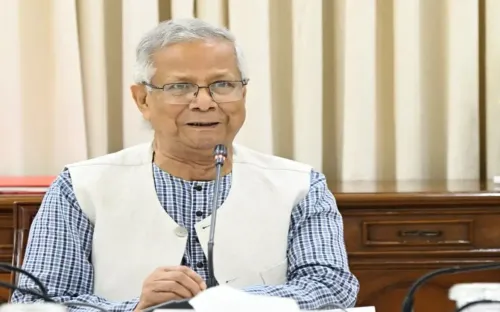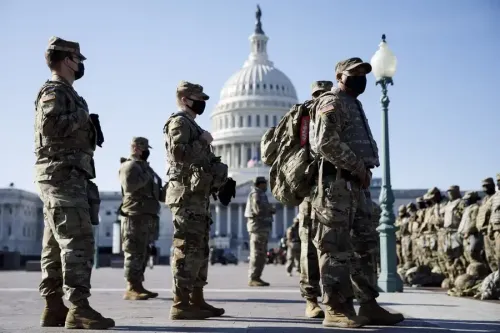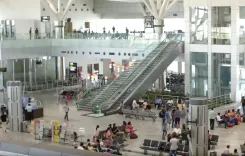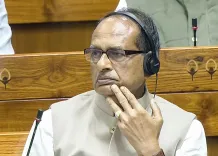Is Former Bangladesh PM Sheikh Hasina Charged with Crimes Against Humanity?
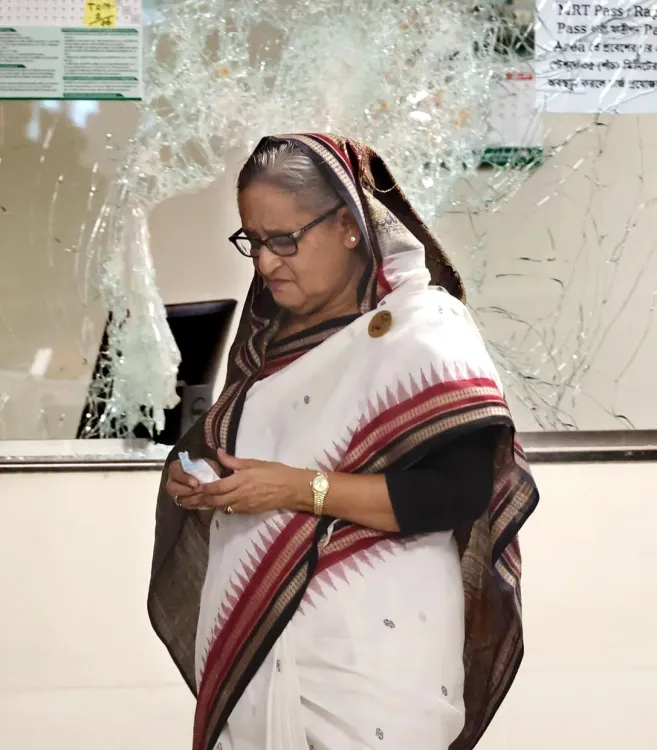
Synopsis
Key Takeaways
- Sheikh Hasina faces serious charges of crimes against humanity.
- The trial is being broadcast live, highlighting its significance.
- Evidence includes video and encrypted communications.
- The political climate in Bangladesh is tense and rapidly evolving.
- Hasina's resignation followed widespread protests demanding change.
Dhaka, June 1 (NationPress) Former Prime Minister of Bangladesh, Sheikh Hasina, has been officially charged with crimes against humanity by the country's International Crimes Tribunal (ICT) concerning her alleged involvement in the violent nationwide uprising of July 2024, as reported by local media outlets.
The announcement of these charges on Sunday represents a pivotal moment in Bangladesh's political arena, coinciding with the commencement of the trial of the exiled former leader, which is being broadcast live on television.
In addition to Hasina, former Home Minister Asaduzzaman Khan Kamal and former Inspector General of Police Chowdhury Abdullah Al-Mamun have also been implicated as co-accused in this case.
During its session on Sunday, the tribunal received a formal charge submission from prosecutors asserting that Hasina was the principal figure instigating the mass violence that swept the nation throughout July and August of the previous year.
The leading Bangladeshi newspaper, The Dhaka Tribune, reported that an investigative report submitted on May 12 indicated that Hasina had "directly ordered" the assassinations.
The allegations suggest that she directed state security forces, members of her political party, and affiliated organizations to carry out brutal crackdowns on the escalating anti-government protests.
Chief Prosecutor of Bangladesh's ICT, Mohammad Tajul Islam, stated during the high-profile televised hearing, "These killings were premeditated."
He presented video evidence and encrypted communications, contending that they demonstrate Hasina's orchestration of a "coordinated, widespread, and systematic attack."
The prosecution argues that Hasina, while serving as the head of government, held command responsibility for the violent actions executed by security forces under her direction during the height of the unrest.
"She unleashed all law enforcement agencies and armed party members to suppress the uprising," Tajul Islam informed the tribunal.
This development follows weeks after the interim government, currently under Muhammad Yunus, prohibited all operations of the Awami League—Hasina's political party—under the Anti-Terrorism Act.
The mass protests, initially ignited in early 2024 by student-led movements opposing a contentious job quota system, rapidly evolved into a broad movement advocating for Hasina's resignation.
By August 5, under immense pressure, Hasina resigned and sought refuge in New Delhi, where she continues to remain in self-imposed exile.
In October 2024, the ICT issued an arrest warrant against her and formally sought her extradition from India.


